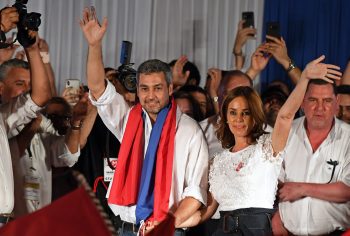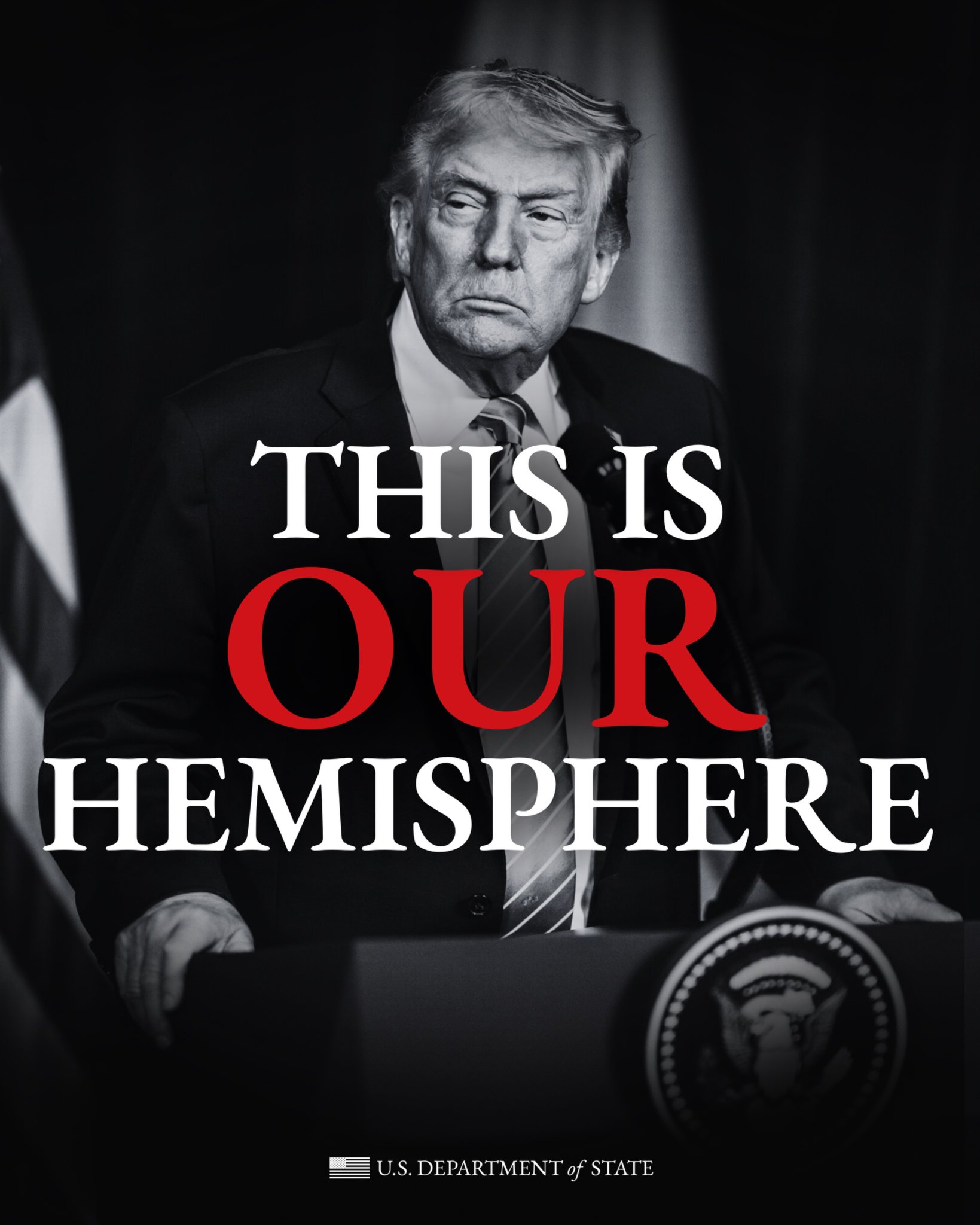 Last April 22 Paraguay held its seventh general election since the fall of the Alfredo Stroessner dictatorship in 1989. Paraguayans went to the polls to elect a president, vice-president, members of congress, governors and representatives to the Mercosur parliament.
Last April 22 Paraguay held its seventh general election since the fall of the Alfredo Stroessner dictatorship in 1989. Paraguayans went to the polls to elect a president, vice-president, members of congress, governors and representatives to the Mercosur parliament.
The candidate of the National Republican Association (ANR), also known as the Colorado Party, Mario Abdo Benítez – son of the personal secretary to former dictator Alfredo Stroessner – won with 46.44 % of the votes, defeating Efraín Alegre, liberal candidate of Alianza Ganar (formed by the Authentic Radical Liberal Party (PLRA) and Frente Guasú (FG)), who obtained 42.74 % of the votes.
The elections were characterized by low level of electoral participation, denunciations of electoral fraud and manipulation through voter surveys. Just 61.40% of registered voters went to the polls, the lowest level of participation since the return to democracy. This fact speaks not only to political apathy on the part of citizens, who indicated that felt the candidates did not represent their interests, but also to low confidence in the electoral system and the ability of elected candidates to effect real political change.
At the same time numerous denunciations of electoral fraud were made by the opposition as well as the general public on social media. Thousands of voters denounced before the Superior Electoral Tribunal of Paraguay Justicia Electoral (TSJE) that their votes weren’t included in the certified tallies on the TSJE website.
Another controversial aspect of these elections was political manipulation through voter polling, which in some cases favored the ANR candidate by 25 points and clearly influenced the electorate. Several polling firms were accused of political favoritism and being on the payroll of certain campaigns. With a final difference of just 3.7% in favor of ANR, it is difficult to estimate the impact if voter polls had accurately shown what was taking place at the ballot box.
Beyond low voter participation and numerous electoral controversies, political analysis is now centered on the future and what the results of the election hold for the country:
Return of conservative forces
President-elect Mario Abdo Benítez, known as Marito to distinguish to him from his father, is nothing less than the son of the man who was Stroessner’s personal secretary and part of the powerful “Golden Foursome,” responsible for and complicit in numerous abuses committed during the dictatorship. Marito has publicly claimed on several occasions that the dictatorship “laid the foundation for the great infrastructure of the Paraguayan people until today.” Ironically, he also defines himself as a credible defender of democracy. Nevertheless, several of his political proposals – such as the re-introduction of compulsory military service – cast doubt on his true intentions and lead to questions as to how far the fruit falls from the tree.
The election of Marito, despite his historic baggage, is due in part to a strategic error by current president Horacio Cartes and in part to the weakness of the opposition. Marito won the presidential primary of the Colorado Party in December 2017 by defeating former finance minister Santiago Peña (the candidate of Cartes). Peña, who initially was affiliated with the Liberal Party, was the candidate selected when Cartes’s hopes for a constitutional amendment that would allow for his reelection were dashed. Within the ANR Peña’s candidacy was perceived as an extension of Cartes and Peña was accused by the bases of being an outsider to the Colorado Party, ultimately leading to his defeat.
On the other hand, the weakness and fragmentation of the opposition parties and their inability to propose candidates who capture the public imagination ended by consolidating victory for Marito. Efraín Alegre (PLRA), also known as ‘Efraudin’ for numerous fraud accusations made against him when he served as public works and communications minister, and Leo Rubín (FG), journalist and environmentalist who ran as his vice-presidential candidate, could not convince the public that they provided a better political option.
Added to this is the power of conservative forces that still dominate Paraguay and saw Marito as the candidate who would allow them to
continue to do so. The main concern is not only with Marito, but with everyone around him – including members of the old guard and ultra-conservative forces – who can see this government as an opportunity not only to reclaim the past but also to impede necessary social change in the poorest country in South America.
Governing without a clear congressional majority
Several corruption and influence peddling scandals involving ANR candidates in the days leading up to the elections meant that the Colorado Party lost several seats in both chambers, leading to the election of representatives of new parties and increasing the number of opposition members.
The Colorado Party lacks a majority in the Senate. Moreover, because of numerous confrontations between different internal fractions of the ANR the majority in the chamber of deputies is not united. Under these circumstances the new administration’s capacity to govern will be subject to its ability to establish complex alliances with opposition parties whose feasibility and sustainability is in question.
Internal political strife in the Colorado Party
Last May 27, President Cartes presented his resignation in order to become a senator, a decision that has not yet been accepted and which must be approved by June 30 for Cartes to be an active member of the new Congress. His controversial decision to become a senator has divided both public as well as legal opinion, since many believe his candidacy is unconstitutional. As a former president Cartes has the right to a seat as senator for life – a position that gives him a voice but not a vote. Nevertheless, he obtained an authorization from electoral officials to be a candidate in the last election.
As of now, his resignation has not yet been approved due to the lack of a congressional quorum. Several congressmen linked to the faction of the president-elect, Añetete, have refused to participate, leading to an internal crisis in the Colorado Party. Cartistas accuse members of Añetete of being traitors and accuse the president-elect of using the financial resources of Cartes to finance the presidential campaign without fulfilling his promises.
Up to this point, is difficult to determine whether it is more convenient for Marito to have Cartes as part of the government in the senate or to politically marginalize him. Cartes’s clear intentions to remain involved and maintain control in one way or another have created deep divisions within the Colorado Party.
In order to govern, Marito will not only be obligated to establish alliances with the opposition, but must also be capable of resolving the profound differences within the internal factions of the ANR. The big question is how much time and political resolve this will take and whether it will distract from the presidential agenda of the first one hundred days.
A difficult road
Five years ago we wondered if Cartes would have the strength and will to dominate the Colorado Party, taking into consideration his status as a political outsider. Today the question is whether Marito can counter the concentration of power amassed by Cartes in recent years and govern with a divided congress.
The problems faced by the new administration – high levels of poverty and inequality, low investment in health and education, an extremely corrupt political system and a public weary of the lack of response from their representatives – are not necessarily new, but require urgent attention and solutions in order to avoid political, economic and social crises of even greater magnitude.
Translated by Barbara Belejack



